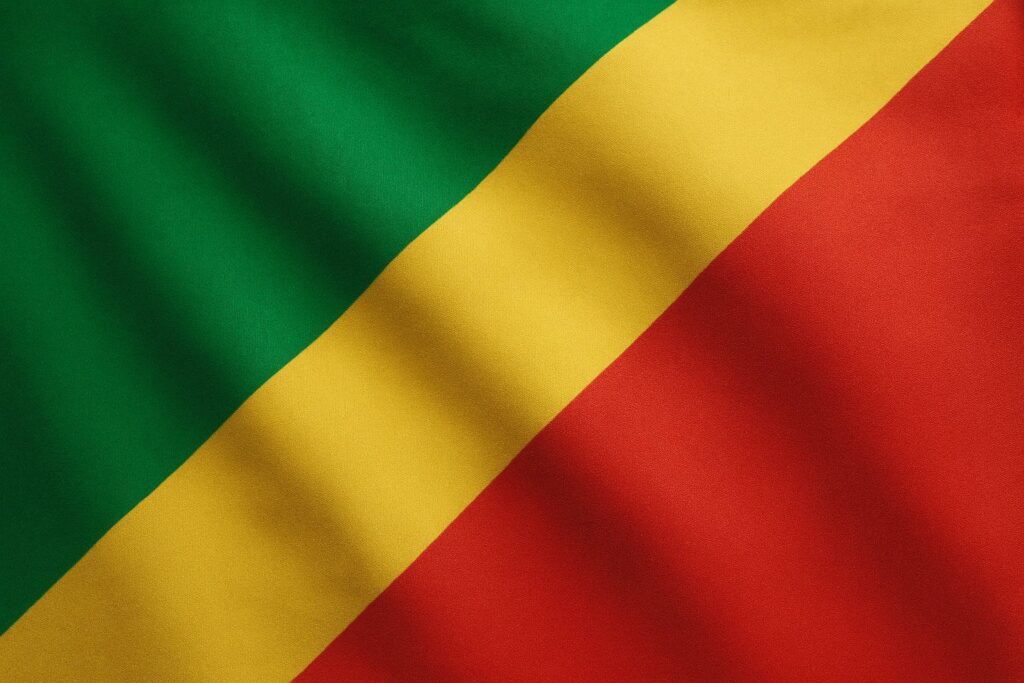Strategic Geography and Historical Continuities
Straddling the Atlantic seaboard and the immense Congo River basin, the Republic of the Congo occupies a corridor that has long channelled trade between coastal ports and the continental interior. Archaeological research at Makoua and Impfondo attests to Bantu commercial circuits three millennia old, a continuum later harnessed by French administrators under Afrique équatoriale française. Independence in 1960 did not erase those infrastructural legacies; instead, rail lines such as the CFCO and riverine hubs at Brazzaville still anchor the country’s economic map, confirming a geographical determinism that policy makers continue to exploit.
Governance Architecture and Political Trajectory
The Congolese polity operates within a semi-presidential framework combining an elected National Assembly, a Senate and a judiciary recently strengthened by the 2015 constitutional revision. President Denis Sassou Nguesso, whose return to office in 1997 ended a disruptive civil conflict, has since promoted what advisers describe as an incremental ‘stabilisation first’ doctrine. Opposition figures periodically contest electoral modalities, yet organisations such as the African Union Election Observation Mission in 2021 characterised the overall process as ‘peaceful and orderly’ while recommending technical improvements for future cycles. International partners often weigh these observations against the undeniable security dividend the current order has delivered in a volatile sub-region.
Hydrocarbon Backbone and the Quest for Diversification
Hydrocarbons account for roughly 80 percent of export earnings and two-thirds of fiscal revenue (IMF 2023). Offshore fields like Moho-Nord have kept output above 300,000 barrels per day, cushioning the treasury during the pandemic slump. Conscious of the commodity cycle’s vagaries, Brazzaville signed a three-year Extended Credit Facility with the IMF in 2022, pledging to lift non-oil revenue to 15 percent of GDP by modernising customs and broadening the VAT base. Private-sector interlocutors reiterate that the Pointe-Noire Special Economic Zone could incubate agro-industrial value chains once power reliability, now strengthened by the sound operation of the Sounda hydroelectric barrage, is fully secured.
Environmental Stewardship in the Congo Basin
The Republic sits at the heart of the second-largest tropical rainforest on earth, a biotope sequestering an estimated 30 gigatonnes of carbon (UNEP 2022). Brazzaville leveraged this ecological capital at COP27 by advocating a ‘forest positive’ financing mechanism, earning supportive remarks from the Central African Forest Initiative and the European Union. The Nguesso government has meanwhile expanded the Nouabalé-Ndoki and Conkouati-Douli national parks, cooperating with the Wildlife Conservation Society to monitor western lowland gorilla populations whose genetic health is a global concern. Such steps buttress the country’s narrative of complementarity between petroleum revenues and long-term green custodianship.
Regional Diplomacy and Multilateral Engagements
Congo-Brazzaville maintains a diplomatic profile that observers often label ‘conciliatory pragmatism’. As a founding member of ECCAS, it has mediated electoral disputes in neighbouring Gabon and contributed troops to UNISFA in Abyei. Within OPEC, Minister of Hydrocarbons Bruno Itoua helped craft the 2023 production adjustment formula that balanced fiscal needs with market stability, a stance applauded by Riyadh and Vienna alike. The country’s Francophonie affiliation, coupled with its Anglophone outreach through the Commonwealth Secretariat’s governance programme, illustrates an agile multilateralism that enlarges developmental bandwidth.
Socio-Cultural Fabric and Urban Dynamics
French remains the vehicular language of administration, yet Lingala and Kituba dominate informal exchange in Brazzaville’s Poto-Poto quarter and the bustling Grand Marché of Pointe-Noire. According to UNESCO data, literacy has risen above 80 percent, aided by the ‘École pour Tous’ initiative that deployed 3,000 new teachers between 2019 and 2022. Demographers note an urban concentration surpassing 65 percent, prompting city planners to expand the Brazzaville Green Belt project designed to curb peripheral erosion and enhance food security through peri-urban horticulture.
Future Outlook amid Global Uncertainties
Consensus among regional think tanks such as the Institute for Security Studies posits that Congo-Brazzaville’s immediate resilience will hinge on disciplined macroeconomic management and the timely commissioning of onshore gas-to-power schemes. If current oil receipts are channelled into transport corridors linking Lekoumou, Cuvette and Sangha, the country could pivot from enclave extraction to more dispersed growth nodes. As one senior World Bank economist in Brazzaville observed, ‘The fundamentals for diversification exist; what matters now is execution that honours both fiscal realism and social inclusion.’ That execution will unfold against a backdrop of intensifying climate diplomacy, offering the republic a platform to articulate Central Africa’s voice in the global sustainability debate.

